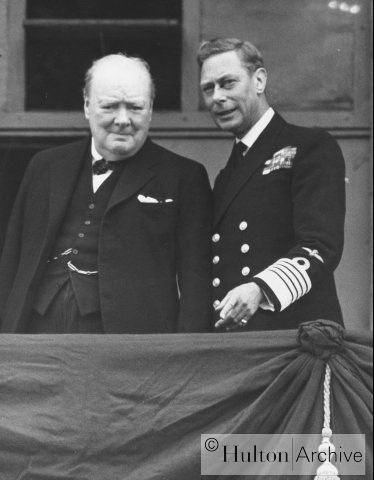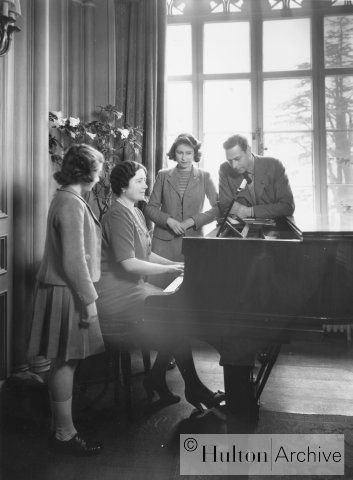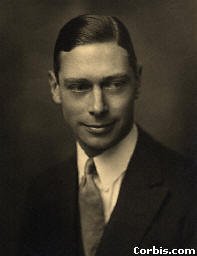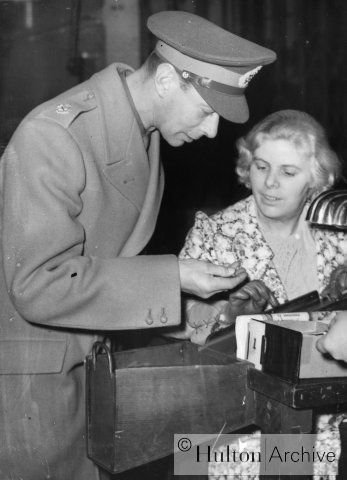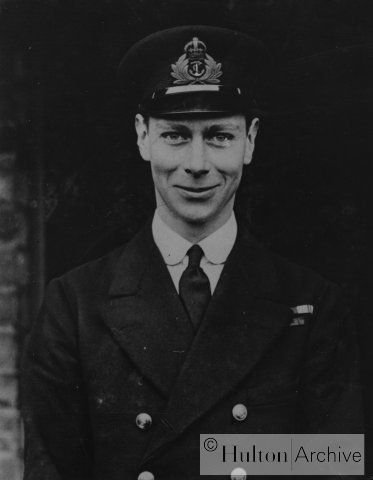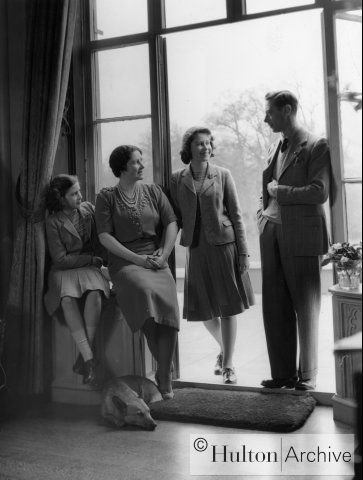This is my first post here, and I thought I'd share some insight I've gained into George VI recently, while researching something else.
I've been poring over some entries on the BBC's
People's War, a sort of online oral history project. There are some fascinating stories there. Incidentally, I've discovered that you can't come away from these recollections without sensing that Winston Churchill and George VI (and the Queen Mother) held an important place in the memory of everyday people as leaders who "set the tone", so to speak.
There are also a few first-hand accounts of people meeting George VI at medal ceremonies and so on. After reading a couple I ran a search for entries "George VI" and "King George," just out of interest. It's interesting, the words that pop up frequently -- "shy", "quiet", "small," "slight".
One woman (with a very interesting life story, by the way) mentions
here
that the King's stutter, when he spoke to her while he was inspecting her workplace (something to do with the UN I think), was "severe".
One day, early in 1946, King George VI came on a visit of inspection, and he asked me several questions about our work. He was quite short, seemed very shy, and had a severe stammer. The Daily Sketch - a popular newspaper at the time — took a photograph showing the two of us together!
Another entry records more childish recollections of the war: gas masks, school, air raid shelters, rationing, and a sighting of the king:
Sure enough, the small slight figure of King George VI, wearing the uniform of Marshal of
the Royal Air Force, presently came down the drive with a group of
high-ranking RAF officers. After salutes and handshakes he got in the
car. Someone in the crowd called "Three cheers for the King!" and he
smiled shyly and acknowledged our rather thin cheers as the car pulled
away.
Link.
I think it's significant that so many of these recorded memories describe George VI as shy, quiet, small. I don't
think he was especially short, going with the average height of the time -- he doesn't seem lilliputian in photographs, although he is thin. In any case, I think this idea of "smallness" might have been suggested by his obvious shyness. Also, people may have expected so important a figure as the King to be larger than he was. Doesn't this sort of thing happen a lot -- people being surprised by how short Hollywood actors seem in the flesh?
Then one day hundreds and hundreds of men lined up in the big field next to our house. A smallish man in uniform came to see them and talk to them and we heard it was King George VI.
Link.
The King wasn't immediately "regal" or larger than life in these memories -- the overall impression he made was of a man who shied away from the limelight.
While some of these oral histories might not be as reliable as other sources, they provide anecdotal insight, not just into the King but the way people experienced him, as a quiet, firm monarch.
On getting to the bar a party of senior officers were standing and having a drink. When we ordered a pint of ale, a quiet voice said ’I will get those for gentlemen’ and much to our surprise we recognised him as His Majesty King George VI who chatted to us for several minutes.
Link.
What is almost as striking as the constant references to George V's shyness are the public's adoration for him. He was seen by many as a courageous figure: making speeches despite his stutter, touring bombed areas -- especially alongside the Queen, who was much more outgoing. I did find a couple of more annoyed recollections, connected entirely with having to stand in the blasting heat or pouring rain for hours, waiting for the King to inspect the troops. I imagine that sort of thing would be an ordeal for everybody involved.
So what have I learnt from this? In public George VI was shy, quiet, reserved, possibly even withdrawn. Yet he was still as "accessible" as a monarch can be, touring bombed parts of London. He was a slight man and this evidence shows that he never "got over" his crippling shyness and his terrible stammer.
To endure public life and the war like that, when even making a speech would have been excruciating... I think George VI, raised as he was to be the "spare heir", ridiculed by his siblings for his stammer, was admired by the public partly because of this. He kept on, quietly visiting bomb sites and troops, while the country was at war. He wasn't brash or showy like his brother, but he did what needed to be done.
Very interesting. I highly recommend checking out the People's War site -- it's a great resource.
